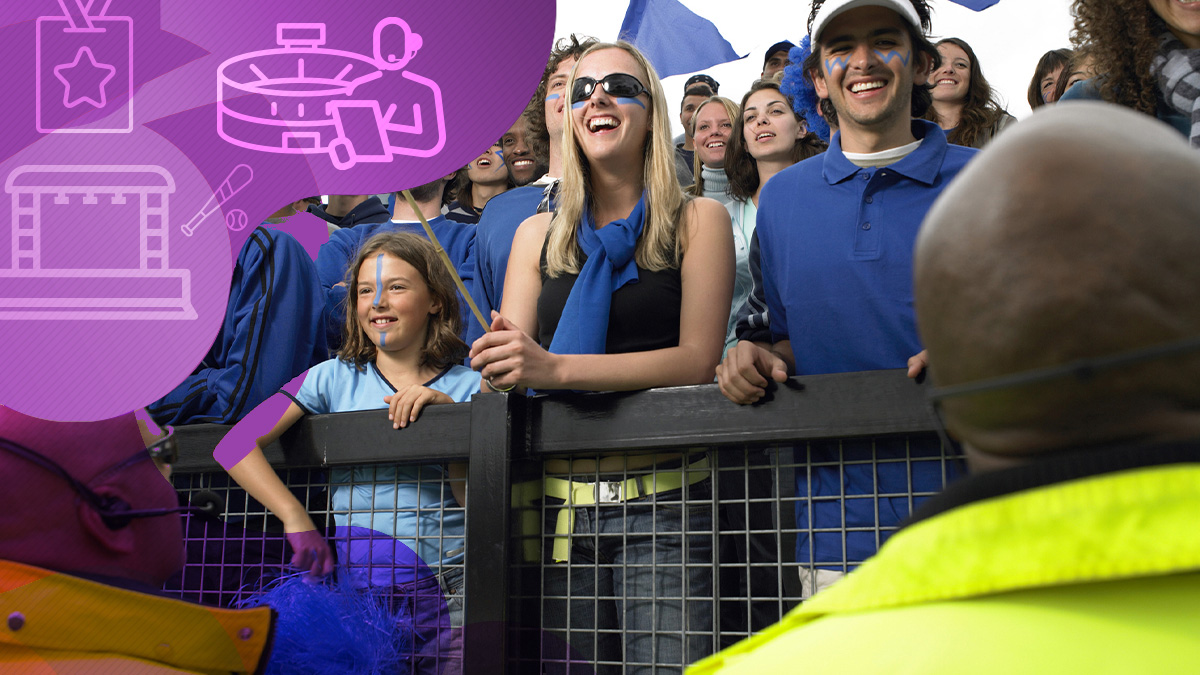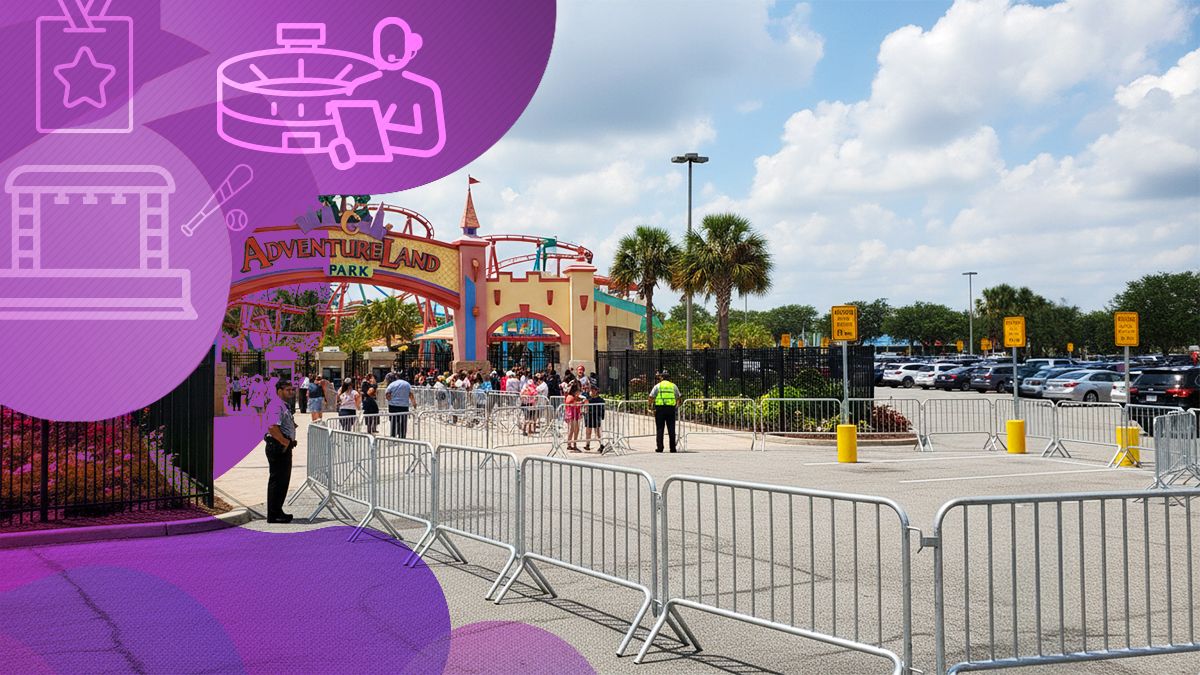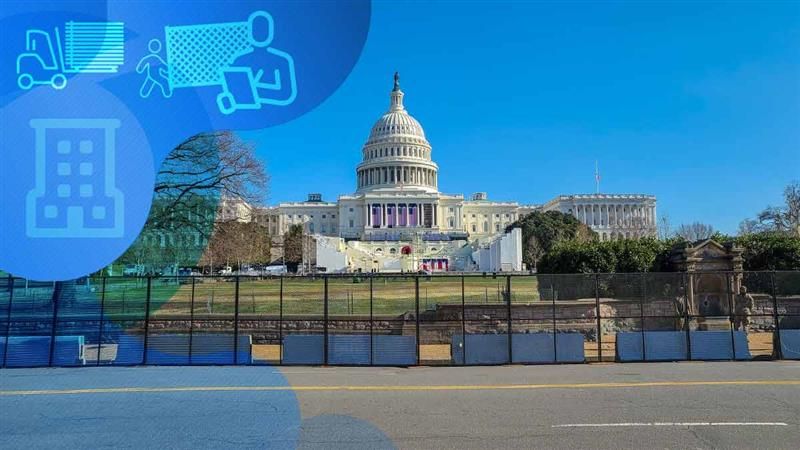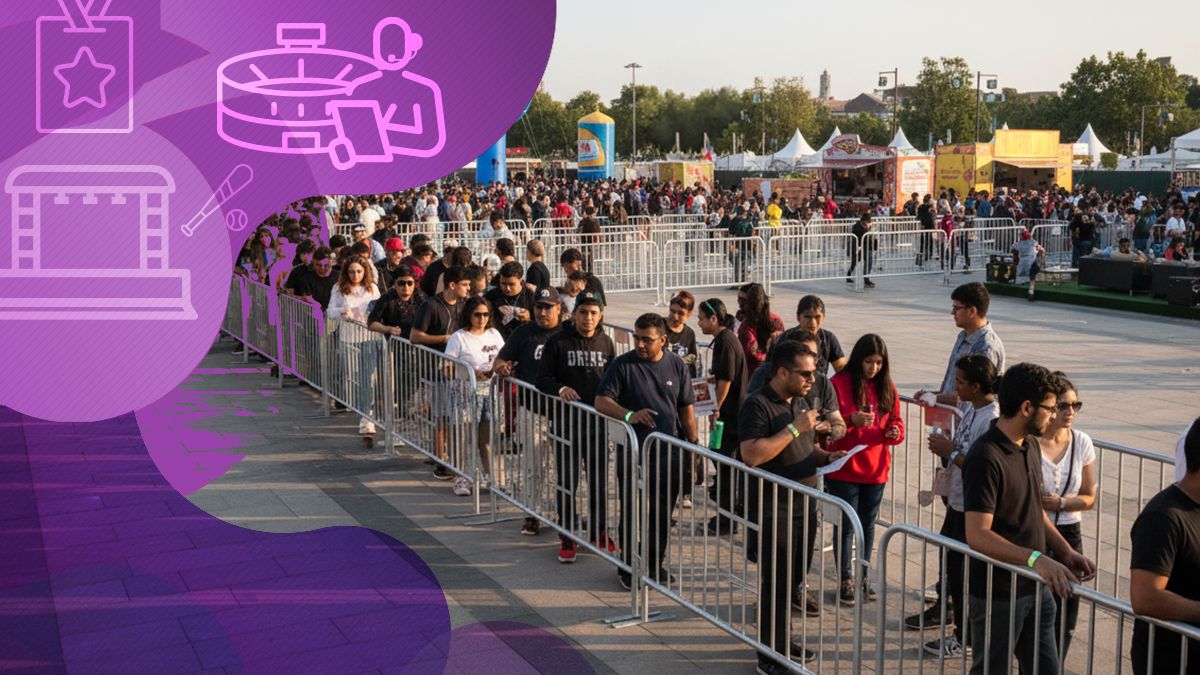Securing an Event Venue
Explore essential federal and local security guidelines to ensure your event venue remains safe, compliant, and ready for any occasion.

Operating a successful event venue business means focusing on the details. Whether it's finding a disco ball for a 1972 class reunion or folding table napkins into origami shapes, event venues must be flexible enough to meet unique client requests. They must create the memorable experiences that customers envision.
Memorable experiences are safe experiences. From start to finish, an event should go as planned. If the unexpected happens, it should go unnoticed by the attendees and staff. Only security personnel should be aware of a deviation.
To meet client expectations, venue business owners must comply with all federal, state, and local laws, including event venue security requirements, while adhering to industry best practices.
Venue owners have a duty of care responsibility to protect event workers, performers and attendees.
What is Event Security?
Event security ensures the safety of property, attendees, and staff at any event. It requires a strategic approach to managing risks, controlling crowds, and responding to emergencies.
The goal is to create a secure environment for people to have memorable experiences without worrying about their safety. An effective security plan relies on a comprehensive risk assessment to identify potential threats and develop procedures to mitigate their impact on an event.
Step 1. Identify the Event
Every event poses security challenges, even if they occur at the same venue. A wedding reception in a ballroom has different security needs from a community-wide outdoor festival. Collecting the basic facts about an event defines the scope of a security plan.
Event Size and Scope
In general, the more attendees, the more extensive the security planning. If an event occurs in multiple buildings or outdoors, the security risks are higher than if it is contained in a single room.
Venue Location
Every venue has its vulnerabilities. If it's a rural venue where attendees can wander freely, crowd control will be more challenging. Venues in populated or high-traffic areas increase potential risks beyond attendees and staff. To maintain effective crowd control, it's important to assess how people will approach, enter, and leave an event.
Type of Event
Security risks are significantly less for a private party than national sporting events. Knowing the event type helps identify the potential security risks. Event timing also plays a part in creating a safe environment. Evening events and day-long concerts selling alcoholic beverages can lead to unruly behavior, requiring a more robust security presence.
Armed with the 'who, what, when, and where' of an event, venue owners can begin their risk assessment. The evaluation should address attendee, performer, and staff safety and include a checklist of all venue regulations to ensure event venue compliance. For example, security guards may be required in some jurisdictions based on the event type, size, and location. Only after a thorough assessment can venue security protocols be developed.


Step 2. Assess Risk
Regardless of size, every event security plan should address the following areas:
Worker Safety
The Department of Labor's Occupational Safety and Health Administration (OSHA) maintains safety standards for workers. The agency develops general as well as job-specific standards to protect employees from work-related hazards. Event venue employees may perform tasks ranging from stage setup -- which requires working on scaffolding, elevated platforms, and electrical wiring -- to helping attendees find their seats.
For example, stage crews may require fall protection equipment, such as harnesses and anchor points, if they work at heights above four feet from ground level. Other crew members may need personal protective equipment (PPE) such as gloves, hard hats, and eyewear when working with electricity or in spaces where falling objects may cause injury. Reflective clothing may be needed for those directing traffic or helping with crowd control.
Event venues that fail to comply with OSHA standards risk fines and penalties. They may also face civil or criminal charges for injuries to staff. Although every state must have a federally mandated workers' compensation program, the states control how it is implemented, with some allowing personal injury claims to be filed.
Performer Safety
Community events, concerts, and sporting events require venue owners to ensure their performers' safety. That means securing entrances and exits for safe arrival and departure. Having crowd control barriers can help direct foot traffic away from show personnel.
Event venues should establish a minimum distance between performers and audiences. They may consider placing security personnel at the entrances and exits to discourage eager fans from breaching a protected zone. A security presence often acts as a deterrent, especially if credential checks are performed.
Failure to establish an appropriate duty of care can subject a venue owner to significant legal liability if a performer is injured. A venue's reputation may be damaged, making it challenging to book ongoing events. Ensuring compliance with all government regulations can reduce the risk of potential litigation that can tie up resources for months, if not years.
Attendee Safety
Venue owners have a duty of care responsibility to all attendees. That includes compliance with OSHA standards and the Americans with Disability Act (ADA). The ADA protects individuals with disabilities from discrimination in public life, including making public venues accessible to people with disabilities. Failure to comply with ADA regulations can result in fines and penalties.
Aside from OSHA and ADA regulations, the federal government requires an event venue to protect workers, performers, and attendees from harm, without violating their constitutional rights or state and local laws. At the same time, the government expects venues to adhere to best practices for protecting national security.
For example, a venue uses an electronic access control system for a family-oriented event. To defend against unauthorized access, any stored data must comply with personal protected information regulations. Children's personal information regulations have added restrictions on what data can be stored and used. Because the federal government does not have national data privacy laws, venue owners must check with their state government to determine if other restrictions apply.


Property Safety
Minimizing property damage means faster turnaround times for booking events. A few trampled bushes can be quickly replaced, but fixing damage caused by unruly crowds can take weeks. With careful planning, venue owners can place manned or unmanned barriers throughout the facility to guard against property damage.
Security cameras are another property protection option. Obvious security cameras, even if they aren't operational, can intimidate potential bad actors, reducing the risk of property damage.
Regulatory Compliance
Most venue-related regulations appear at the state and local level rather than at the federal level. Federal jurisdiction applies to OSHA, ADA, data privacy, and constitutional rights violations. It looks to private sector associations such as the National Fire Protection Association and the Event Standards Alliance to define best practices. It relies on state and local agencies for venue licenses, permits, and regulatory enforcement.
Step 3. Mitigate Risks
Reducing or eliminating potential risks means venue owners must follow best practices for event security, starting with obtaining the necessary event permits and licenses. The discussion assumes venue owners have obtained the necessary operation licenses for an event venue business.
Permits and Licenses
Even established event venue owners may need to apply for special event permits. In some areas, a general event planning permit or license is sufficient, while others may require added permits for specific events such as concerts, festivals, or craft shows. Cities may require event structures such as elevated stages, pop-up concessions, and memorabilia stands to receive a special permit rather than include them under a general building permit, even if they are temporary.
Other licenses or permits may include:
- Liquor License. Before serving alcohol at an event, obtain an alcohol license and ensure compliance with rules regarding age, quantity, and operating hours.
- Health Permit. Venues offering food services must have a health permit to comply with food and safety regulations.
- Noise Permit. Most cities have noise restrictions. If an event will violate noise ordinances, request a waiver to avoid fines or legal action.
- Music and Entertainment (M&E) License. Not all jurisdictions require an M&E license; however, obtaining a license indicates a willingness to observe copyright laws and protect intellectual property rights.
- Film and Photography Permits. Some locations may prohibit photography in specific areas.
Most of these licenses or permits should be requested when establishing an event venue business rather than on a per-event basis. Other permits such as street closures or firework displays are more likely to be event-specific.
Crowd Control
The Cybersecurity and Infrastructure Security Agency offers a venue security checklist that includes crowd control guidelines. The checklist includes using barricades, fencing, and security personnel to restrict access to non-public areas. Use physical crowd control equipment to ensure attendees follow the desired paths for entering and exiting.
Crowd control barricades come in various types, and choosing one that is difficult to breach is essential for event security. What factors should you consider when selecting barricades? We cover the details in this downloadable guide. Get it for FREE today and make the best choice for crowd safety!


Access Control
Limiting the number of entry points is the best way to control access, and that applies to attendees, performers, and staff. Have trained security and staff personnel near the entry and exit points to monitor suspicious behavior.
- Staff. Consider background checks and photo identification cards. Maintain a list of staff vehicles and have unauthorized cars removed. Stipulate a staff-only entrance and exit.
- Performers. Request a list of all performer personnel and require photo identification before allowing entry.
- Attendees. Establish designated checkpoints where visual searches can be conducted, and tickets can be scanned.
Restrict access to utility areas and have security personnel available at all access points.
Emergency Response
Identify staging areas for first responders, fire, police, and medical personnel in case of an emergency. Coordinate with local fire, police, and medical staff to identify evacuation routes. Test the system regularly.
Training
People are essential to securing an event venue. They assess behaviors and search packages, backpacks, and baby carriers for suspicious items. They make real-time decisions on what is and isn't acceptable. Employees need training on how to compassionately search special needs visitors and service animals.
Step 4. Consider a Crowd Manager
Securing an event venue requires careful coordination among clients, government officials, performers, and staff. For large events with hundreds of attendees, the details can become overwhelming unless someone is dedicated to managing the process -- from pre-event planning to post-event assessment.
A crowd manager is someone trained in securing events of all sizes. Crowd managers identify risks and establish protocols for mitigating them, using best practices to ensure compliance with all regulatory agencies.
Some states require crowd managers to be part of the team if there are 250 people or more at an event. Added managers may be needed if the number of people exceeds 250. A general rule is to have a crowd manager for every 250 people.
Crowd or safety managers understand how to use equipment such as belt barriers, temporary fencing, or barricades to facilitate crowd control. With the increase in cybersecurity attacks, they have become attuned to the virtual defenses that help ensure a safe experience in the physical world.
Trend now

Theme Park Safety: Avoiding Fines and Accidents with Crowd Control
Learn how crowd control products help keep theme parks safe, avoid accidents, and improve operations. Explore SONCO’s solutions for better crowd management.

Anti Scale Fence for Temporary High-Security Needs
Anti scale fence designed for temporary high-security perimeters, crowd control, protests, and emergency response where standard fencing falls short.

Why Bike Rack Barricades Are the Go-To Choice for Crowd Control
Explore why bike rack barricades are the go-to for crowd control. Learn how these versatile, durable barriers keep events, construction sites, and more organized.





